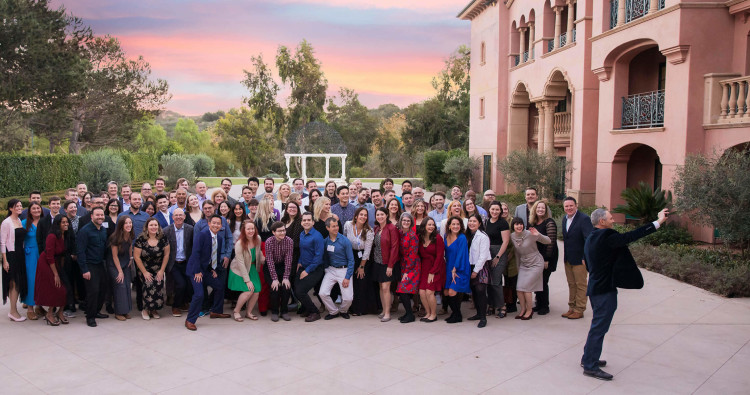
5 lies they tell you about building a startup
What do startup founders have in common with new parents? You might say sleep deprivation. Or perhaps some generalized anxiety. Both of those are true. Exhaustion and nerves run high when you are launching an early-stage company. But I would add another commonality: unsolicited advice. Folks are always happy to share their experiences, going so far as to tell you what to expect and how to handle it — even when that guidance does not apply to you.
Conceptually, the biggest misunderstanding about building a startup is that someone else's route to success will be the same as yours.
My co-founder and I founded Aha! a little more than 10 years ago. We flouted many of the “rules” that were set at the time for technology companies — no salespeople, no offices, no VC funding.
We put people and profit first like so many generations before us did. Now, we are well past $100 million in recurring revenue and still growing strong. Our success (and the success of many other bootstrapped companies) shows that many of the basic lies about building a startup are easily proven wrong.
So, what are these lies? You have likely heard them before, but you might not have recognized them as untrue. They are repeated so often that people start to accept these concepts as entrepreneurial bedrock. Some are part of our collective consciousness — internalized stories of breakout success and “unicorn” status that became canon. Others are reassuring myths that we founders tell ourselves in moments of fear or uncertainty.
Here are the five lies about building a startup that I have heard the most:
1. You need a lot of money to start a software company
You do not need a lot of money to begin. Starting out lean instills good practices and helps sharpen your decision-making fast. In my experience, standing up a SaaS product generally has reasonable associated costs — assuming that you do not buy into the lies below and you and your founding partner or team have a broad set of skills.
2. You must be in a certain location to hire the best talent
You do not need to be in a "tech hub" with a fancy office to find folks with talent. In fact, you will likely find more depth of expertise and passion with reduced cost if you choose a fully distributed model (and more loyalty too). People who can do meaningful work from where they are happiest tend to stay.
3. You have to raise VC money to become a meaningful business
You can grow your way and be a meaningful business. Bootstrapping allows you to grow organically, meaning no artificial promises or unnecessary hiring. It also helps you make decisions based on what you think will bring the most value to the business and to customers �— not investors.
4. You should fail fast and be agile
You cannot keep pivoting your way out of bad choices. An early-stage company does not have a deep well of past learnings to rely upon. So you need to be intentional with the assumptions that inform your decisions and the goals you set — the signposts of success or failure. Be acutely aware of where and when things go wrong. Have the humility and openness to learn from errors and missteps rather than move past them to the next new thing.
5. You can find work-life balance
You will work exceptionally hard if your startup is fortunate enough to gain traction. But you will never find balance — that infers equal distribution at all times. Sustainable happiness comes when you integrate work and life as two parts of a whole. Reframe your thinking and seek a time-slicing mindset that allows you to serve the company, your friends and family, and yourself with care. If you compartmentalize, you will miss opportunities and challenges when your attention is needed most.
Building and growing a startup is an ongoing exercise in sound decision-making. You will sometimes choose wrong, which is part of getting to what is right.
Most successful founders are realistic optimists by nature. We are able to ground ourselves in the practicalities of today while also pushing towards our vision of the future. We welcome the truth of the experience. And we reject the lies that lull us into complacency when we think we have succeeded and when we think we cannot go forward.
I quickly admit to anyone who asks that I am still learning the truths about being a startup founder and leading a high-growth software company. What I do know is that how you choose to operate and grow the business impacts not just your customers, but also your team and yourself.
And with that growth comes increased complexity, uncertainty, and consequences for all. It never gets easier, but the challenge of discovery and continued progress are always the reward.
What are the truths about building a software company? Sign up for The Startup Adventure newsletter for more insights.




